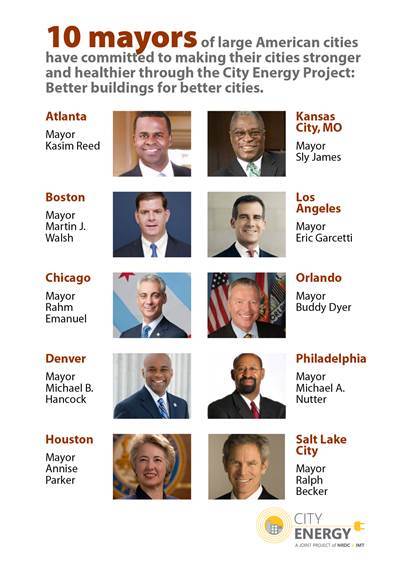Buildings throughout our U.S. cities consume enormous amounts of electricity. Through lighting, heating and cooling, computers, and equipment they are often running continuously 24/7. These buildings are extremely inefficient, and according to the DOE, waste up to 30 percent of the energy they consume. Most buildings are powered by fossil fuels, and these un-optimized structures are powering pollution. Inefficiencies present major opportunities for cities and building owners to save money and improve conservation through the use of automated technologies and operational improvements. 10 mayors of American cities have announced they will be developing their own customized energy-savings plans and predict combined savings of $1 billion per year on their bills.

Atlanta, Boston, Chicago, Denver, Houston, Kansas City, Los Angeles, Orlando, Philadelphia and Salt Lake City will be working with experts to introduce low- and no-cost measures to improve efficiency. Simple implementations like installing sensors that automatically turn off lights when offices are empty and customizing climate controls for weekends and nights will go a long way in savings. We can expect to see changes first implemented in city and government buildings.
When building owners see the savings that can be achieved by increasing efficiency it should prompt them to be more proactive. The owners of the Empire State Building, for example, are saving $2.2 million each year in operating costs thanks to energy efficient upgrades, and project that annual savings will reach $4.4 million when the project is complete. Many efficiency measures simply pay for themselves in a short period of time.
As more cities turn their focus toward efficiency, we will have more data to educate other city leaders and building owners. It’s no wonder these cities are embracing efficiency, it’s never been easier or cheaper to implement.
Source: Huffington Post








Comments are closed.